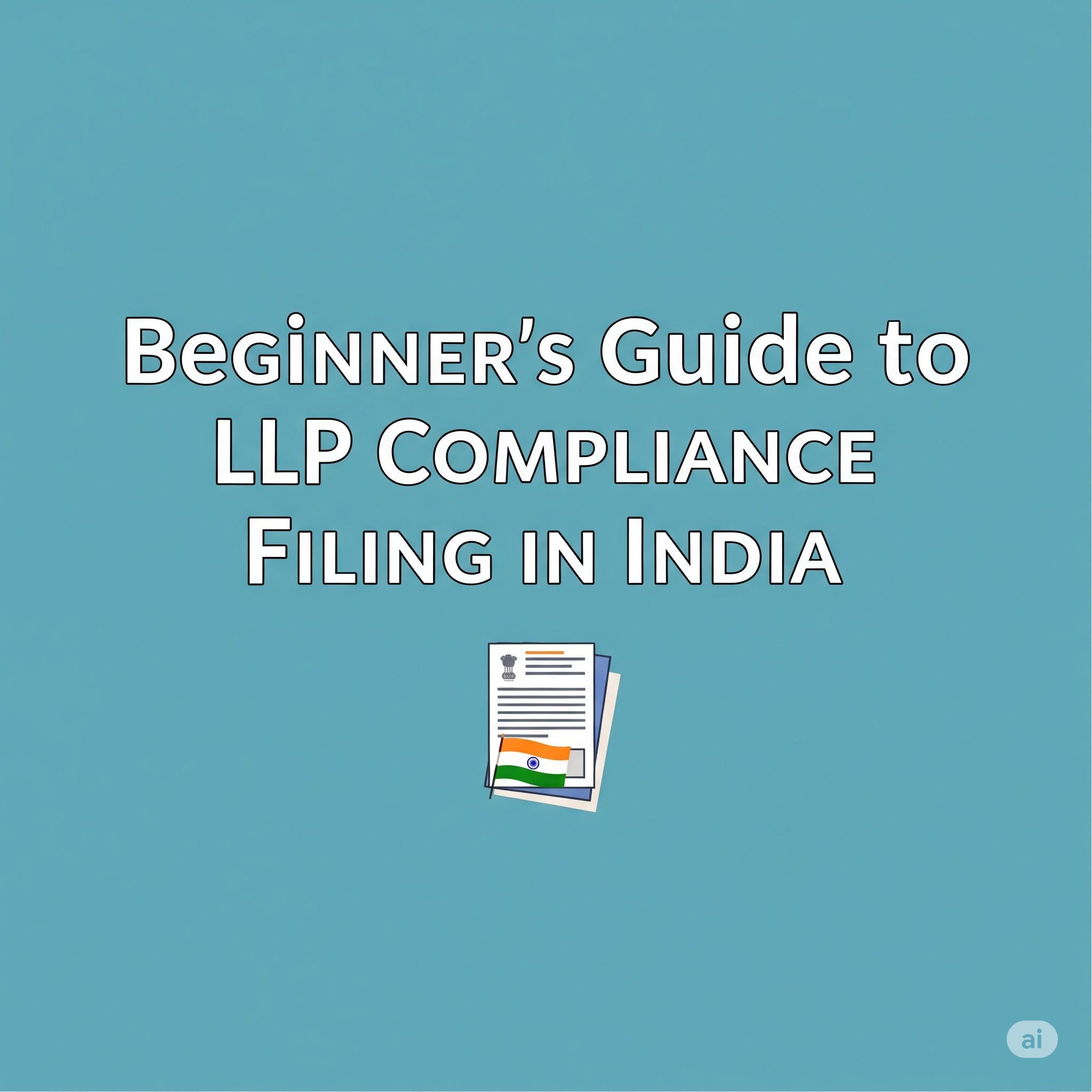Beginner's Guide to LLP Compliance Filing in India
Starting a Limited Liability Partnership (LLP) in India is a smart move for professionals and entrepreneurs seeking flexibility with limited liability. But forming an LLP is just the beginning — staying compliant with Indian laws is essential to keep your business in good standing.
If you're new to LLPs, this guide will walk you through the basic compliance filing requirements, key deadlines, and essential tips to stay on track.
🔍 What Is an LLP?
A Limited Liability Partnership (LLP) is a hybrid business structure that combines the benefits of a partnership and a private limited company. It offers:
-
Limited liability protection to partners
-
Operational flexibility
-
Fewer regulatory burdens compared to companies
📋 Key Annual LLP Compliances in India
Even if your LLP is not actively operating or earning profits, annual compliance is mandatory. Below are the core filings:
✅ 1. Form 11 – Annual Return
-
What it is: Summary of LLP’s partners and basic information
-
Who should file: All LLPs
-
Due date: 30th May every year
-
Penalty for late filing: ₹100 per day (no cap)
✅ 2. Form 8 – Statement of Accounts & Solvency
-
What it is: Financial statements and declaration of solvency
-
Who should file: LLPs with financial activity
-
Due date: 30th October every year
-
Penalty for late filing: ₹100 per day (no cap)
✅ 3. Income Tax Return (ITR)
-
Due date:
-
31st July for LLPs not requiring an audit
-
31st October, if an audit is required
-
-
Form: ITR-5
-
Note: LLPs with turnover above ₹40 lakh or capital over ₹25 lakh must get their accounts audited
📌 Event-Based Compliance (As Applicable)
Apart from annual filings, LLPs must also comply with certain filings when events occur:
-
Change in partners (Form 4)
-
Change in registered office (Form 15)
-
Increase in contribution (Form 3)
-
Strike-off application (Form 24)
These filings must be done within specified timelines to avoid penalties.
📚 Books & Records to Maintain
LLPs must maintain the following records at their registered office:
-
Book of accounts (cash or accrual basis)
-
Copies of filed forms with the ROC
-
Minutes and resolutions (if applicable)
-
PAN, TAN, and GST documents (if applicable)
All records should be preserved for at least 8 years.
⚠️ What Happens if You Miss Compliance?
-
₹100 per day fine per form, with no maximum limit
-
Difficulty in applying for loans or tenders
-
Inactive or default status on the MCA portal
-
Strike-off proceedings by the Registrar of Companies
-
Disqualification of designated partners
👨💼 Who Are Designated Partners and What Are Their Responsibilities?
Designated partners are responsible for:
-
Ensuring timely filings
-
Maintaining accounts and records
-
Communicating with the Registrar
-
Avoiding non-compliance penalties
Each LLP must have at least two designated partners, one of whom must be an Indian resident.
🧾 How to File LLP Forms?
Most LLP filings are done online through the MCA (Ministry of Corporate Affairs) portal. Here’s a simple checklist:
-
Log in to https://www.mca.gov.in
-
Download the respective e-form (e.g., Form 8, Form 11)
-
Fill the form, and attach the required documents
-
Get it digitally signed by the designated partner
-
Upload and pay the government fees
💡 Tips to Stay Compliant
-
Create a compliance calendar
-
Set reminders for all due dates
-
Consult a professional (CA/CS) for accurate filing
-
Don’t wait till the last minute
-
File NIL returns if there's no business activity
✅ Conclusion
Compliance may seem overwhelming at first, but once you understand the basic requirements and deadlines, it becomes manageable. Whether your LLP is newly incorporated or already running, timely compliance filing ensures peace of mind and avoids costly penalties.
If you’re unsure or short on time, consider using a professional LLP compliance service to handle your filings smoothly.
